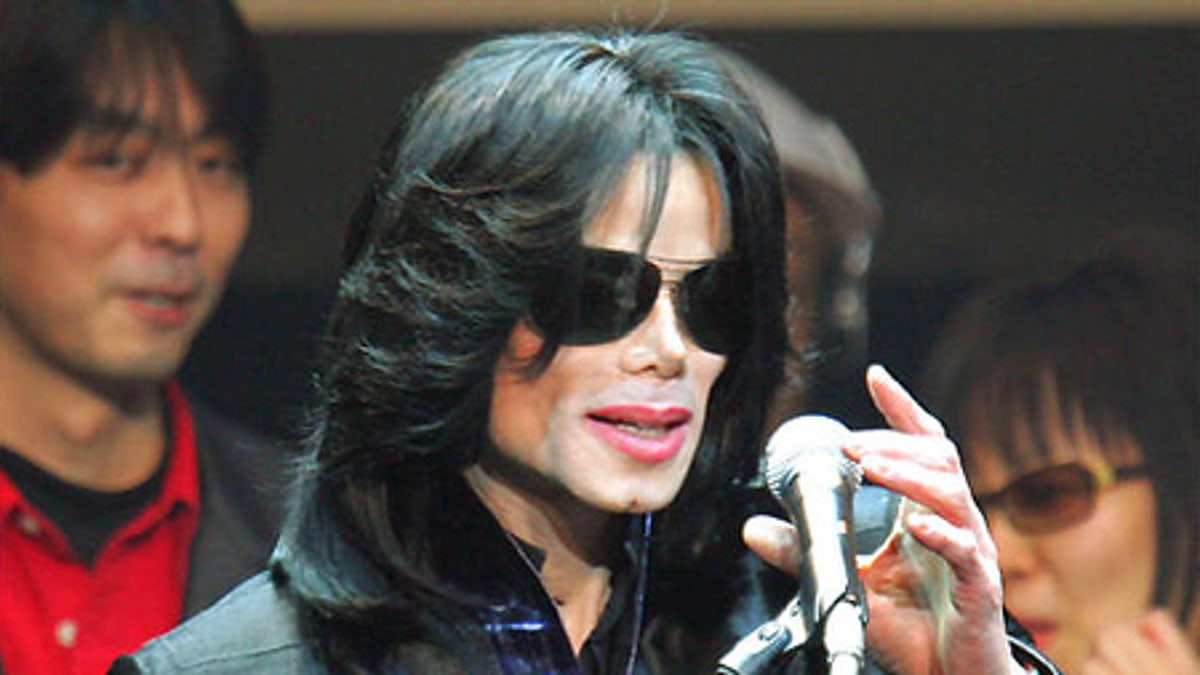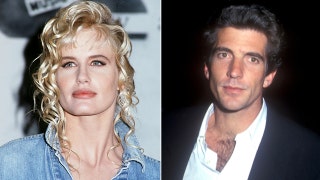
March 9, 2007: Michael Jackson delivers his speech to fans during an event "Fan Appreciation Day" in Tokyo. (AP)
LOS ANGELES – A dancer who worked with Michael Jackson throughout his career testified on Wednesday that she told the director of Jackson's ill-fated concert tour that she was worried about the singer's health.
Witness Alif Sankey told a jury deciding a lawsuit that the pop star appeared thin and unprepared in 2009 for the rigors of his planned comeback concerts known as "This Is It."
The singer showed up at one rehearsal with shoes that had holes in the soles, missed rehearsals and appeared much thinner than earlier in his career, Sankey testified.
Sankey showed jurors an email she wrote to tour director Kenny Ortega in early June 2009, urging him to try to improve Jackson's health and spirits. She never got a direct reply but testified that Ortega raised the concerns with concert promoter AEG Live.
"Please help me help you to get him back into that Magical Light, please let me help you help him find what was lost, his GRAIL," Sankey wrote to Ortega, who she had worked closely with for a number of years.
Testimony showed Ortega copied Sankey on several email messages that he sent to AEG executives about Jackson's condition and the need for him to receive physical therapy and better nutrition.
"He requires more attention and management," Ortega wrote in one email. "I truly believe he needs nourishment guidance and physical therapy (massage) for his fatigued muscles and injuries. He is not in great physical shape. I believe he's hurting."
Sankey met Jackson while working on his 1987 video for "Smooth Criminal" and was an associate producer and planned to dance onstage during "This Is It."
She was testifying at the trial of a negligent hiring lawsuit filed by Jackson's mother against AEG Live LLC. Katherine Jackson claims AEG failed to properly investigate the doctor who was caring for her son and later administered a fatal dose of the anesthetic propofol to the singer in June 2009.
The promoter has denied wrongdoing and its attorneys have said the singer hid his addiction to propofol. Jackson's former physician, Conrad Murray, was convicted in 2011 of involuntary manslaughter.
Plaintiff's attorney Brian Panish asked Sankey about one message in which AEG executive Paul Gongaware told Ortega that he planned to talk to Murray.
"We want to remind him that it is AEG, not MJ who is paying his salary," the message said. "We want him to understand what is expected of him."
Sankey said she based some of her impressions of Jackson over the years on how he felt when they hugged.
"When I hugged him, he just felt like marble," Sankey said about Jackson early in his career. "But when I hugged, when I saw him briefly in 2006, he didn't feel like that anymore. He felt thin."
On cross-examination, Sankey acknowledged that her impressions were formed from brief interactions with the singer and she never had a long conversation with him.
She was, however, trusted enough to be around Jackson's children, whose privacy he fiercely protected.
Sankey testified that Paris Jackson once shared a secret, saying she didn't want her father to find out about candy stuffed inside her purse.
There were also several tiny pictures inside her purse -- all of her father.














































